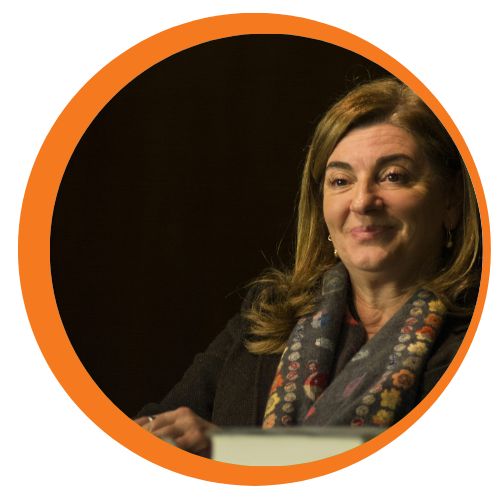Amélia Polónia
Session International S&T Partnerhips: Platforms of Science Diplomacy, 11 a.m.
Member of the Board of Directors of the Portuguese Foundation for Science and Technology, FCT
Full Professor at the Faculty of Arts and Humanities of University of Porto (FLUP) and member of the Academia Europaea – The Academy of Europe. Holds a PhD in History (2000) and aggregation (2009) from U. Porto, and an honorary PhD in Maritime History from Université Bretagne Sud (2020). She has held academic and scientific management positions, namely the Scientific Coordination of CITCEM - Transdisciplinary Research Centre 'Culture, Space and Memory' since 2017. She held the positions of director of the Department of History and Political and International Studies of FLUP and was the coordinator of the European Interdisciplinary Master African Studies, an EJMD Erasmus+. She was a member of the scientific committee of the European Joint Doctorate (EJD) TEEME (Text and Event in Early Modern Europe) and a member of the EJD Marie Skłodowska-Curie MOVES (Migration and Modernity. Historical and Cultural Challenges). As a Member of the Advisory Boards of ERC AdvG and Starting Grants, she coordinated several national (FCT and Calouste Gulbenkian Foundation) and international (European Science Foundation and CYTED) funding research projects. She's a member of several Action Cost and other international research networks, and a coordinator and member of national (FCT, A3ES) and international scientific and academic project evaluation panels: European Science Foundation; FWO (Research Foundation Flanders); NWO (Netherlands) and ARSS (Slovenian Research Agency), among others. She was scientific advisor of postdoctoral projects and PhD students (national and international) and supervised the activities of junior researchers hired under different programmes to boost scientific employment, within the scope of CITCEM. She's a member of editorial boards at Brill and Ashgate and published in indexed journals at Scopus and Web of Science, as well as in international publishing houses (Brill, Routledge, Palgrave-MacMillan, Bloomsbury). Her scientific research falls within the field of postcolonial studies. Her latest publications focus on the role of women as intermediaries and on the environmental impact of Iberian colonisation processes during the Modern Era. She was a visiting professor at French, American, Israeli, Brazilian, Argentinian, and Indian universities.


